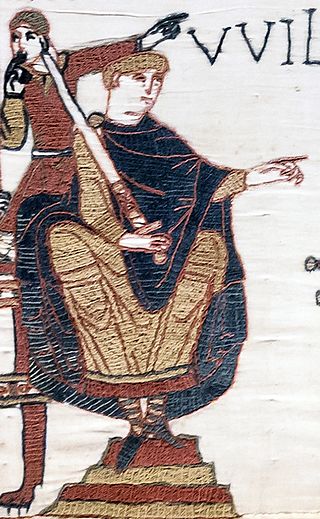Treatises are written discourses.
Contents
Treatise or variation, may also refer to:
Treatises are written discourses.
Treatise or variation, may also refer to:
Treaty of Paris may refer to one of many treaties signed in Paris, France:
Anglo-Dutch Treaty may refer to:
The Treaty of London or London Convention or similar may refer to:
Mortality is the state of being mortal, or susceptible to death; the opposite of immortality.

William is a masculine given name of French origin. It became very popular in the English language after the Norman conquest of England in 1066, and remained so throughout the Middle Ages and into the modern era. It is sometimes abbreviated "Wm." Shortened familiar versions in English include Will, Wills, Willy, Willie, Liam, Bill, and Billy. A common Irish form is Liam. Scottish diminutives include Wull, Willie or Wullie. Female forms are Willa, Willemina, Wilma and Wilhelmina.
Treaty of Westminster may refer to:
Tract may refer to:
Geraldine may refer to:
Brut may refer to:
Discourse is a use of written or spoken communication.
Cantaloupe is a fruit.
Devereux is a Norman surname found frequently in Ireland, Wales, England and around the English-speaking world. Saint Devereux Church in Hereford, United Kingdom is also named Saint Dubricius and is dedicated to the 6th century clergyman Saint Dubricius from Hereford, suggesting that the name is a Norman French rendering of Dubricius or the saint's Welsh name Dyfrig. In Ireland, the name is associated with Wexford, where the Cambro-Normans first invaded from Pembrokeshire, Wales in 1170. Devereux is more probably the Anglo-Norman form of D'Evreux / Devreux, meaning d'Évreux. Anglo-Norman develops regularly a svarabakhti vowel /e/ between /v/ and /r/, such as in overi, or livere. Dubricius is called Dubrice in French and Dyfrig would have given *Difry / *Dufry in French and *Difery / *Dufery in Anglo-Norman, and St. Devereux is probably a mistranslation after the surname Devereux. The French variant is Devreux, which unlike Devereux is found within Normandy and France themselves.
Giffard is an Anglo-Norman surname, carried by a number of families of the Peerage of the United Kingdom and the landed gentry. They included the Earls of Halsbury and the Giffards of Chillington Hall, Staffordshire. Notable people with the surname include:
Hearn or Hearne may refer to:
Dionisie de Munchensi was the second wife of landowner Warin de Munchensi, stepmother to Joan de Munchensi, and addressee of Walter de Bibbesworth's Anglo-Norman language-learning poem The Treatise.

The Treatise is an Anglo-Norman poem written in the mid-13th century by Walter of Bibbesworth, addressed to Dionisie de Munchensi, with the aim of helping her to teach her children French, the language of the Norman aristocracy. It was a popular text in medieval England, and is a very early example of a book intended for reading to children.
Anglo-Norman may refer to:
Tractate, a written work dealing formally and systematically with a subject, may refer to:
Treaties are binding agreements under international law.

de Búrca is an Irish Anglo-Norman surname deriving from the ancient Anglo-Norman and Hiberno-Norman noble dynasty, the House of Burgh. In Ireland, the descendants of William de Burgh (c.1160–1206) had the surname de Burgh which was gaelicised in Irish as de Búrca and over the centuries became Búrc then Burke and Bourke.